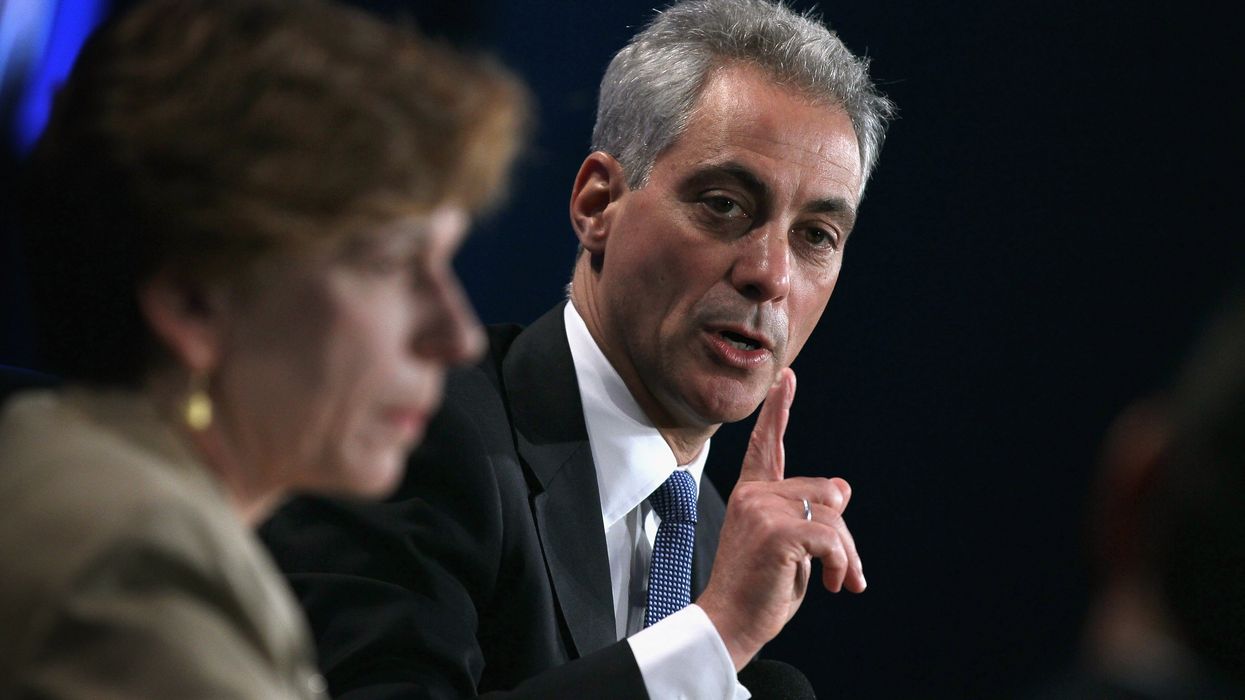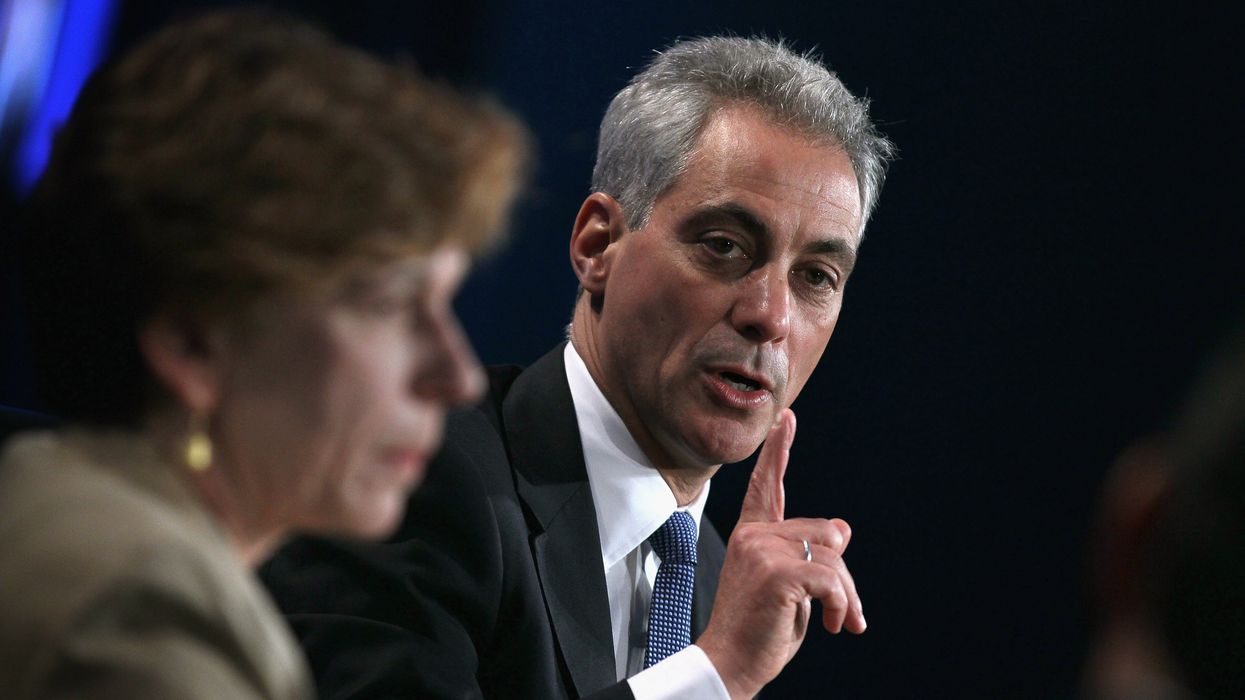Shady Loan Deals With JPMorgan Chase Put Chicago Schools in a Financial Vice
Big banks like Chase have repeatedly targeted communities, taxpayers, and even our schools with predatory debt. It's time to fight back.
Chicago’s school year kicked off amid a looming budget crisis that jeopardizes stability for both students and teachers. At the heart of the issue is a silent killer of public education: predatory bank loans, particularly from JPMorgan Chase.
During a bargaining session with the Chicago Teachers Union (CTU), I urged Chicago Public Schools (CPS) to stop allowing big banks to hold Chicago students hostage. Instead of delaying contract negotiations with teachers and risking program cuts that harm students, CPS and state officials should take legal action to recover the funds lost due to these toxic bank deals.
CPS has a deficit projection of over half a billion dollars, perpetuated by the several hundred million dollars in predatory loans from banks like JPMorgan Chase taken out nearly a decade ago. These loans have strangled CPS finances and prevented the district from providing the high-quality education Chicago's children deserve.
Predatory loans are a familiar problem for families in Chicago and around the country. These risky loans are hawked as a short-term solution to fill a gap in finances–with a steep interest rate buried in the fine print that balloons over time.
Chicago Public Schools should hold banks like Chase accountable for the harm they’ve caused Chicago’s schoolchildren.
Chase has repeatedly targeted communities, taxpayers, and even our schools with predatory debt. Chase and its predecessor banks pushed Black and brown Chicagoans into the predatory subprime mortgages that caused the 2008 financial crisis, leading to a tsunami of foreclosures that resulted in a massive loss of household wealth in communities of color.
And nearly 10 years ago, Chase closed a predatory deal with CPS that has haunted our finances ever since.
CPS was already reeling from drastic cuts to special education services in 2016, prompted by the immediate payment of $234 million in termination fees for bad deals they entered into a decade prior. An unfair school funding formula forced 50 schools to shutter three years earlier and continued to destabilize the same South and West side neighborhoods.
A twin set of threats were on the horizon: a potential takeover of schools by Governor Bruce Rauner, a Republican who was hellbent on making Illinois more like Texas, and a threat by Mayor Rahm Emanuel to lay off 6,000 teachers to close a budget gap caused by structural underfunding.
The school district desperately needed funds to pay for projects like lead abatement. Rather than face a takeover or mass layoffs, they decided to issue bonds in order to pay the termination fee. But because CPS’s credit rating had been downgraded to “junk” just a few months prior, financial giants like Chase and Nuveen exploited the opportunity.
Banks purchased the bonds from CPS at a lowball price but then sold them to other investors just months later for a much higher payoff. Over a span of two months, Chase bank made a 9.5% profit on $150 million in bonds through this arbitrage scheme, an annualized profit of 82%. This calls into question whether Chase met its legal obligation to give CPS a fair price for the bonds. Our schools are still impacted by these bad deals, paying $200 million annually for loans taken out during this moment of crisis.
CPS was also the victim of toxic interest rate swaps deals that cost the district, Chicago, and the state of Illinois hundreds of millions of dollars in the early 2000s. Banks had marketed swaps as a way for cash-strapped governments to save money, but they were laden with hidden risks that materialized as a result of the 2008 financial crisis, causing payments to skyrocket and costing taxpayers a fortune.
As with Chicago’s parking meter and Skyway deals, future generations of taxpayers were stuck holding the bag. From 2012 to 2016, the City of Chicago handed over $145 million to Chase Bank alone to terminate these toxic swaps.
CPS should hold banks like Chase accountable for the harm they’ve caused Chicago’s schoolchildren. There is strong reason to believe the banks that trapped CPS into these predatory deals violated their legal responsibilities to the district. While the district has improved its financial health since 2016, recovering the millions lost to predatory lending would help build on their progress.
Decades of underfunding and predatory banking have swallowed the district’s reserves. Now, faced with a federal reduction that could slash funding by $800 per student, the district has reached an inflection point: Will CPS hold banks accountable and fund the programs, resources, and staff that students deserve—or will they make cuts that set kids back?

